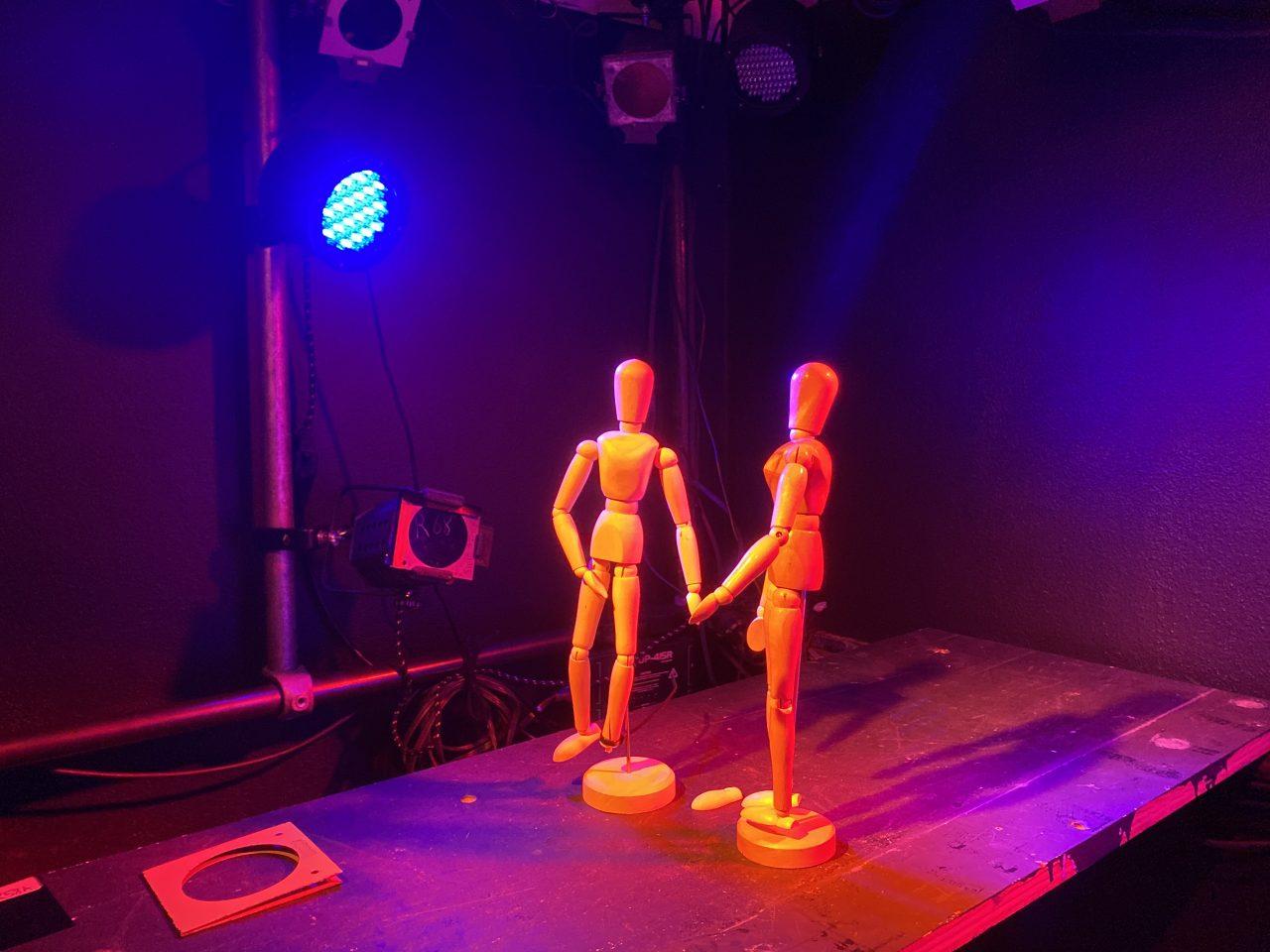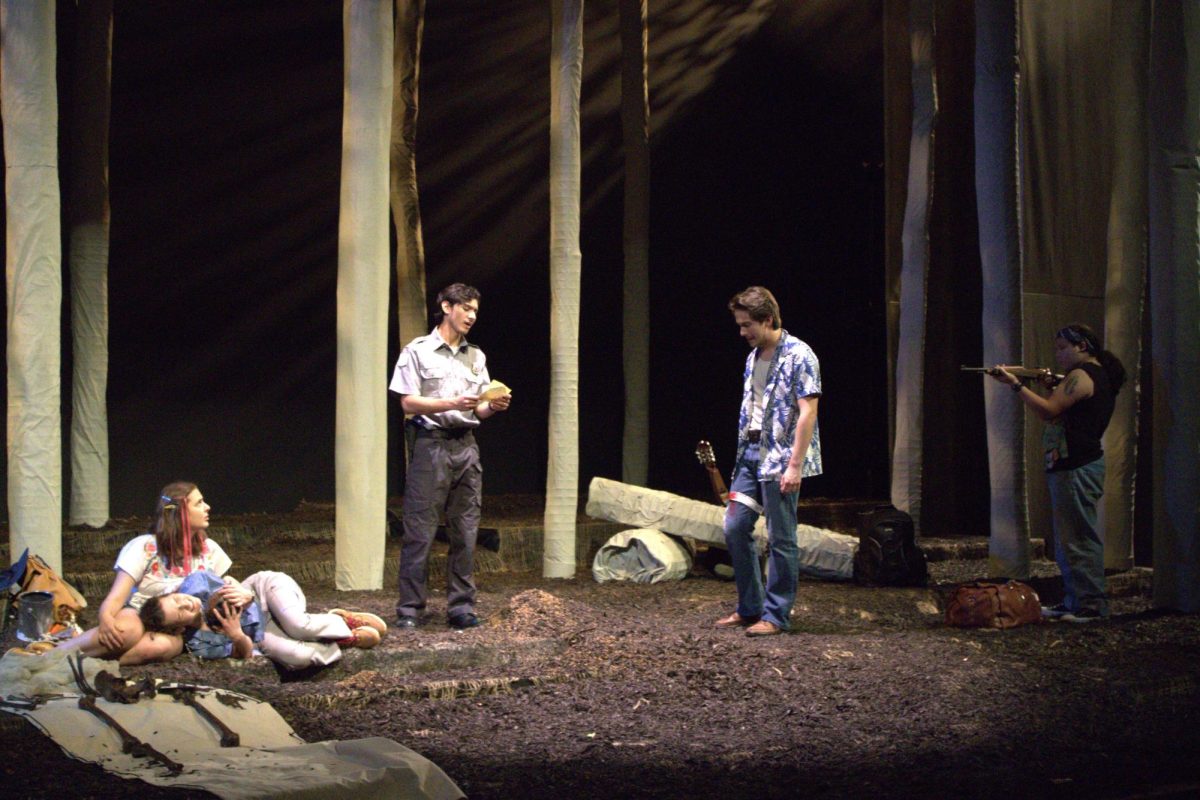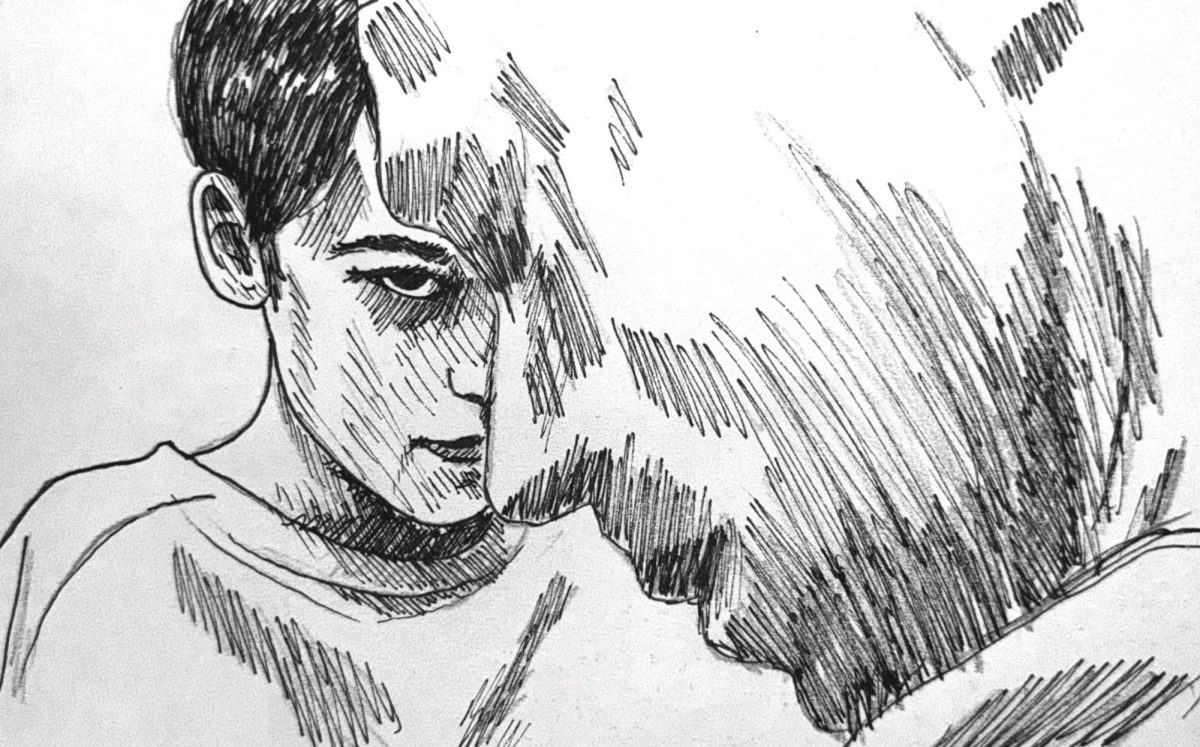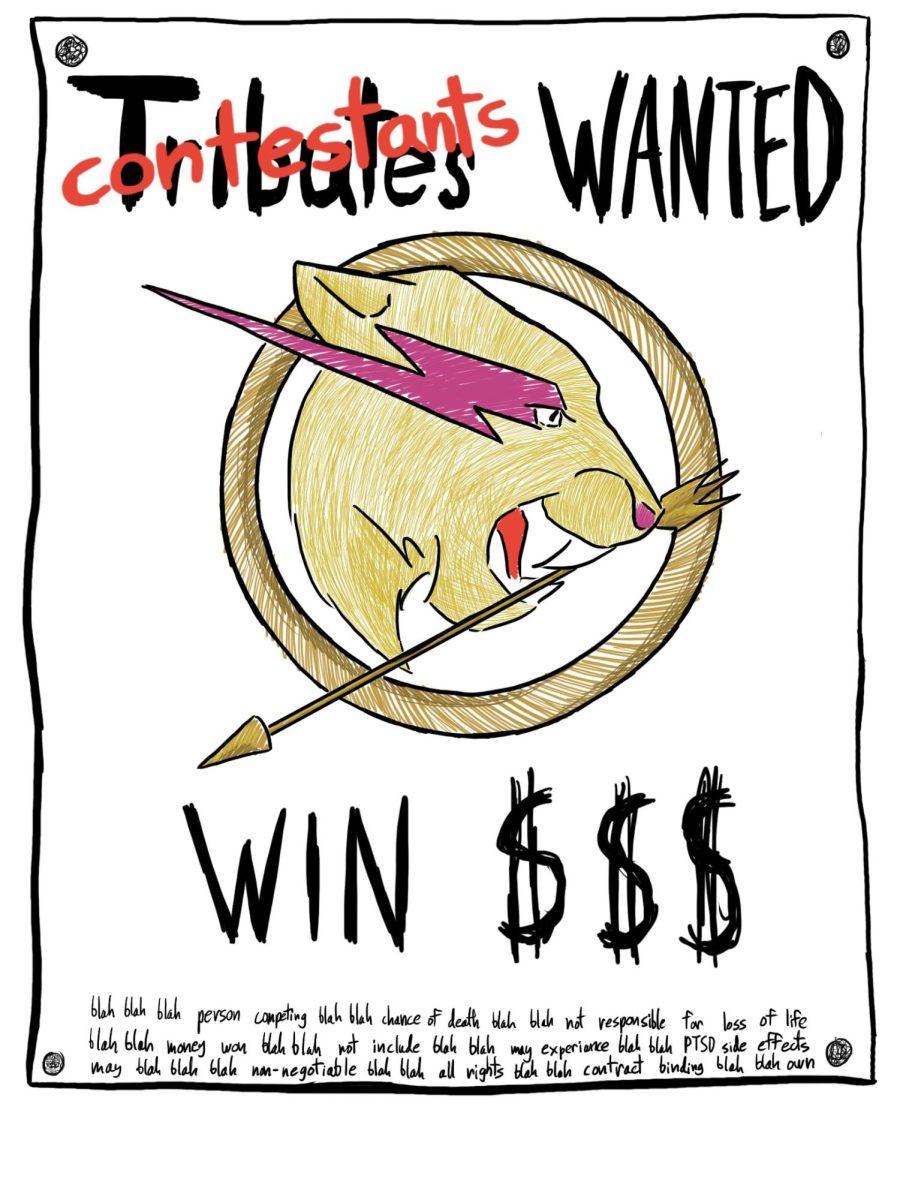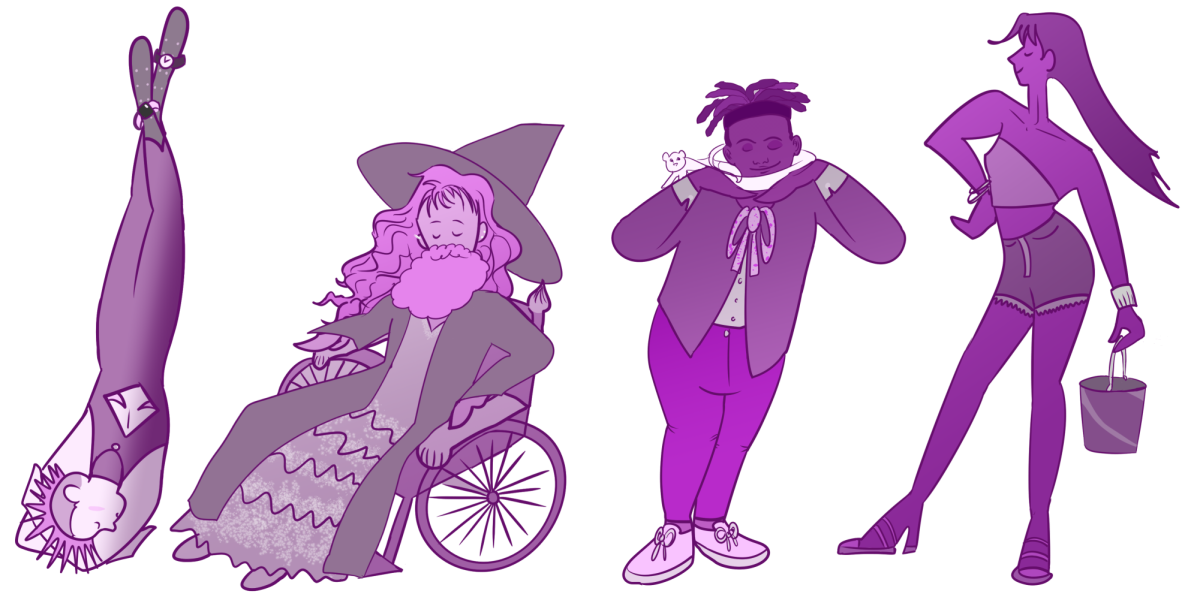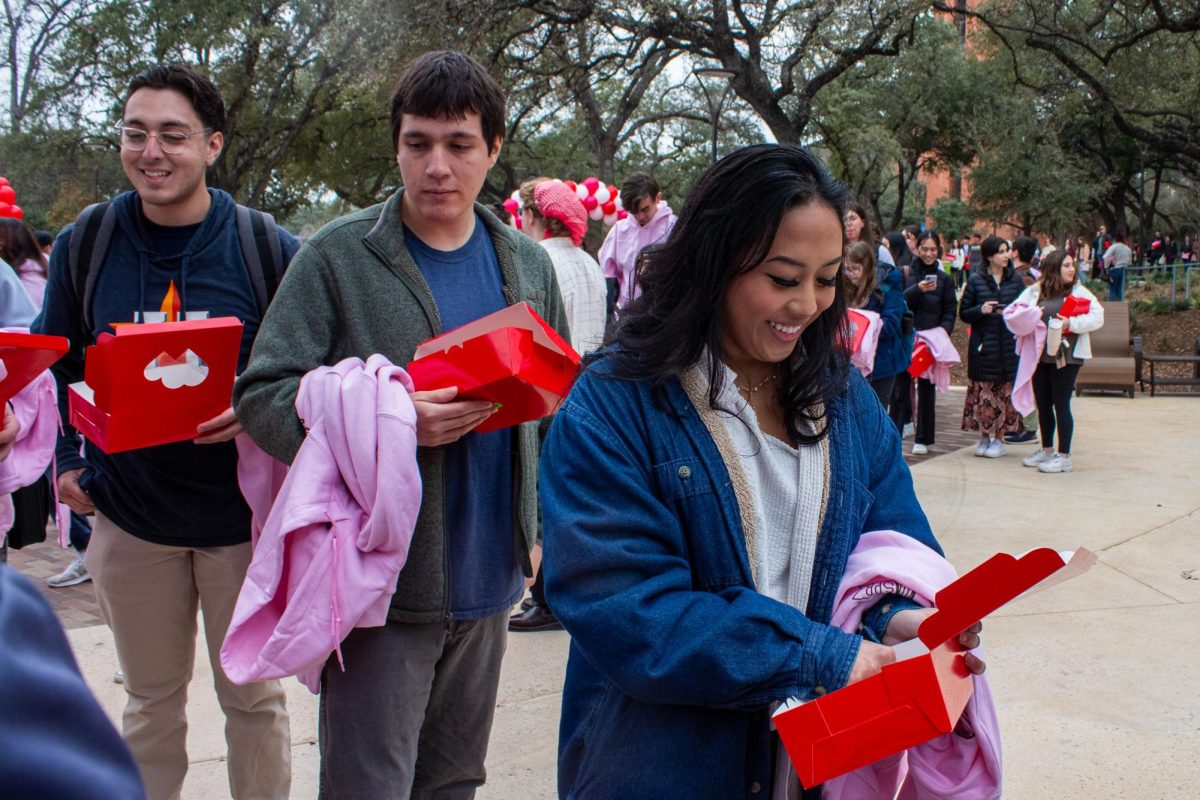Photo by Jordan Bruce
More goes into a theatre production than just rehearsing lines and scenes. There are people working on costumes, the set, sound and lights. These aspects of the show are behind and on the stage and Trinity’s Department of Theatre Principles of Stage Lighting class shines a light on all that goes into illuminating a show.
Taught every spring by the Department of Theatre technical director Tim Francis, the class intends to introduce students to the complex world of stage lighting technology. The course covers the various tools and software that areused in lighting, as well as helping students to understand more about the actual lights that they are using. Students are first taught how to manually light a stage themselves before learning how to utilize software to make the job easier.
“We do a few major projects in the class,” Francis said. “The first one uses manual control, just so that students can get a feel for what happens when you fade a slider and a light dims.”
Students are currently working on their second project, one that instructs them to use lighting software to cue lights to music. This project presents a number of challenges from adjusting from manual lighting to software to getting the timing right with music.
“We each got a song and a little box in the studio that has lights we can queue,” said first-year Megan McGuire. “We also have two dolls in the center of the box to light up, but really the focus is on queuing to music.”
The class, which has recently been approved to fulfill the digital literacy requirement of Pathways, typically has about 17 students from a variety of backgrounds.
“I get a wide cross-section of students in the class every year, which I really enjoy. Some have never even set foot in a theater before,” Francis said. “Every year, they’re intimidated as I tell them information and they hear about all that they’ll be doing in the semester.”
The final project of the class is for each student to light one performance during the Momentum dance concert. Students have to quickly progress from lighting a small box in the design studio to lighting an entire stage performance. However, Francis believes that the challenges of the class are worth it in the end.
“The payoff is the Momentum concert,” Francis said. “All of the students are just super proud of the work they’ve done and how far they’ve grown.”
Besides getting to light a student performance, a benefit of the class is simply a better understanding of how lighting technology works.
“I’m not only getting a bigger appreciation for lighting and tech, but I feel like I’m becoming more well-rounded in theater,” McGuire said. “I think it’s helped my understanding of theater and of the process. Eventually, if I do want to write and direct my own shows, understanding tech is vital.”
Even for those not involved in theater, the stage lighting class has proven to be enjoyable and enlightening.
“I don’t really see myself as a theatre kid. I’m a business major, after all,” said Ericka Sosso, a senior in the class. “That being said, I enjoy this class. I like all the choices we get to make. It’s cool to completely transform something because of lighting.”
The enjoyment students get out of the class is reflective of Francis’s love for the subject.
“What I like about this class, and lighting in general, is that it combines my passions in life, which are understanding practical, technical skills and using those skills in an artistic way,” Francis said. “For me, a lot of it is a logic puzzle. We can create tools that as lighting designers do the fun part of lighting. We always want the lighting to serve the art.”
Students in the class gain a new appreciation for all of the work that goes into lighting a show, and, for some, the class has changed how they view theater and all the tech that goes on behind the scenes.
“It feels very empowering to be up so high and doing something that directly impacts a show,” McGuire said. “Tech people never get enough credit. The single gesture at the end of the show that we give them will never be enough.”

